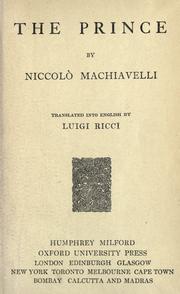


Here we see the paradoxical combination of realism, on the one hand, and hopefulness, on the other hand, at the core of Machiavelli’s thought and of modern political philosophy more generally. To be concerned with the effectual truth is not simply to be concerned with the real as opposed to the ideal but also to be concerned with affecting the real with changing reality. Without going so far as to claim that the classics and medievals would have regarded Machiavelli’s practical guidance as superior to their own, we can safely observe that affecting politics was less important for them than it was for Machiavelli or any subsequent political philosopher. To this charge of failing to give the best practical advice to political men, the classical and medieval political philosophers are more open, perhaps even by their own admission. Indeed, he suggests that it is this latter, practical intention that has led him to break with the tradition when he observes, “it is so far from how one lives to how one should live that he who lets go of what is done for what should be done learns his ruin rather than his preservation” (61). But Machiavelli promises not merely to better understand but also to better affect politics. Of course Machiavelli’s classical and medieval predecessors would quarrel with the suggestion that their procedure obscures political life as it is experienced by human beings. Unlike the classics who focus their attention on an admittedly unattainable best regime, or their Christian successors who set their sights on the otherworldly city of God, Machiavelli, in going directly to the effectual truth, concerns himself with politics as it is actually practiced in the world, in this world. In Chapter XV of The Prince, he indicates that his novelty consists specifically in going “directly to the effectual truth of the thing than to the imagination of it” (61). Indeed, in composing The Prince and Discourses, Machiavelli founded modern political philosophy, which is also to say he intended to overthrow classical and medieval political philosophy.įully intending to have such a revolutionary effect, Machiavelli announces in the preface to Book I of the Discourses that he has discovered “new modes and orders” and taken “a path as yet untrodden by anyone” (emphasis added) (5). Written by the Florentine philosopher and statesman, Niccolò Machiavelli (1469-1527), The Prince, along with Machiavelli’s other major work, Discourses on Livy, brought about a transformation in political theory and political practice. Few, if any, works of political philosophy have been more important for grand strategy and diplomacy than The Prince.


 0 kommentar(er)
0 kommentar(er)
